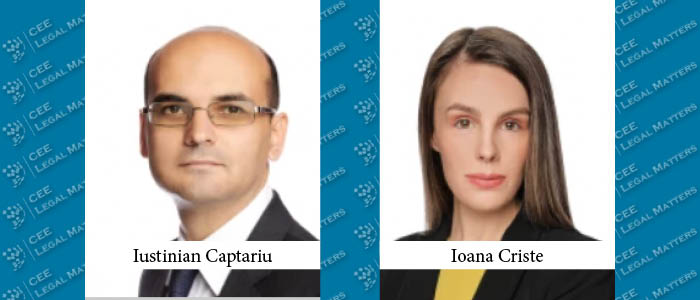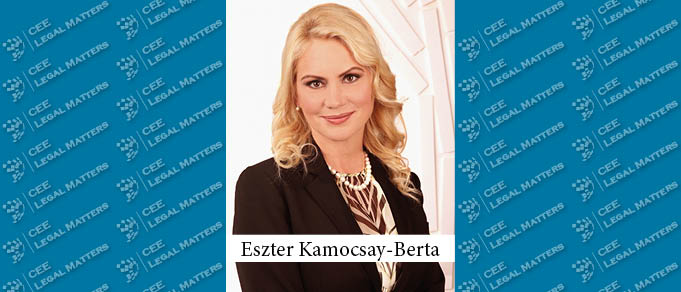The Romanian Energy Regulatory Authority (“ANRE”) has announced important amendments to the rules for connecting new power-generation capacities to the public network.
Latest Changes to Personal Income Allowances
Starting on 1 January 2024, a new feature was launched regarding personal income allowances, meaning that certain tax base reduction allowances can also be claimed on a continuing basis. The purpose of the existing tax advance return is to allow the employer to determine and deduct the tax advance, considering both benefits and costs.
Poland: Web Apps and Privacy Notices in the Crosshairs of Polish Data Regulator
The Polish Data Protection Authority (PUODO) has recently published its new sectoral inspection plan for 2024. Every year, the authority indicates which business sectors or specific processing operations will be subject to increased regulatory scrutiny and potential enforcement for failure to comply. This year, the plan includes three points, one of which relates to public authorities processing personal data in the Schengen Information System (SIS) and Visa Information System (VIS). However, the other two points of the plan are relevant to businesses across all sectors in the private sector.
Legal Considerations for Investing in Generative AI in Hungary — A dilemma of Data and Authorship
Nowadays, one can hear a lot about generative artificial intelligence ("Generative AI"), which can be used to create different types of content (e.g., text, images, software source code) in an automated way by giving simple instructions (so-called "prompts"). Companies may reasonably ask whether it is worth investing, at this point, in software using Generative AI; however, the current Hungarian legislative environment does not provide answers to this question, which could clearly provide guidance in all cases, on a general basis. For this reason, the legal implications of each investment (be it either procurement or "in-house" development) need to be examined on a case-by-case basis.
Data Act – Who Will Gain and Who Will Lose?
Regulation of the European Parliament and of the Council on harmonised rules on fair access to and use of data (Data Act) entered into force on 11 January 2024, and it will become applicable in September 2025. Entrepreneurs therefore still have 19 months to prepare for the changes. What changes does the new EU regulation provide for?
Romanian PPP Legislative Saga….Are We There Yet?
A new piece of the complex puzzle of public private partnerships in Romania came recently into the form of a new law, namely Law no. 7/2024 for the approval of Government Emergency Ordinance no.39/2018 on PPP (“Law 7/2024”), which brings significant amendments to the PPP regime. Also, in order to further support the recourse to the PPP tool, the Public Investment Management Unit within the Ministry of Finance commissioned a technical assistance project with DG Reform following which a comprehensive package of guides were published on 9 February 2024 on the website of the Ministry of Finance, with the aim to facilitate the understanding by the public sector of this tool, in order to increase its use in practice.
Victim of Malware Accused of Intent?! Quite Possibly, But How.
By Decision of the Court of Justice of the European Union ("CJEU") of 14.12.2023 in case C‑340/21 the CJEU clarified several controversial aspects of the implementation of the GDPR.
A Proposal Made by the Government for Preferential Taxation of "Digital" Companies Employing Foreign Workers
According to a draft legislation on digital companies issued at the end of 2023, “digital companies” would be exempt from paying public burdens and local business tax. Employees in employment relationships and the executives of companies could fulfil their tax payment obligations after their income through special public burden contributions.
The Registration of an Electronic Account in the Unified Judicial Information and Telecommunication System (UJITS) Becomes Mandatory for Legal Entities of Private Ownership Within Civil and Administrative Court Proceedings
On 18 October 2023, the Law of Ukraine "On Amendments to Certain Legislative Acts of Ukraine Regarding Mandatory Registration and Use of Electronic Accounts in the Unified Judicial Information and Telecommunication System (UJITS) or its separate subsystem (Module) that provides for the exchange of documents" dated 29 June 2023 No. 3200-IX (hereinafter referred to as the Law) came into effect. The Law introduces changes to the provisions of procedural codes, particularly the Civil Procedural Code of Ukraine, the Commercial Procedural Code of Ukraine and the Code of Administrative Procedure of Ukraine.
A Year in Review: A Brief Analysis of the Serbian Banking Sector in 2023
As of the close of 2022, Serbia's banking sector faced challenges amid global economic conditions. The year 2023 brought its distinct set of obstacles, with a noteworthy slowdown in global inflation compared to the last quarter of 2022. However, the undeniable focal point is the war in Ukraine, triggering a faster inflationary spiral due to increased energy and food prices.
Czech Republic: The Consolidation Package and its impact on Labour Law and HR
As of 1 January 2024, a significant portion of the Consolidation Package (Act No. 349/2023 Coll.) came into effect. However, certain modifications introduced by the Consolidation Package in the field of labour law have not yet been fully implemented in practice, while some other notable changes will take effect from 1 July 2024. In our article, we outline key changes and highlight areas for which there are further legislative revisions in the pipeline.
Platform Workers are Not Employees, Hungarian Curia Confirms
The legal status of platform workers (e.g. food couriers) is continuously subject to interpretation and often times scrutiny from the authorities. The Hungarian Curia settled the status in its latest decision, at least from a labour law point of view.
Amendments to Law on Strategic Investments: Deadline for Applications Extended until December 2027
The Law no. 55/2015 “For strategic investments in the Republic of Albania”, determines the procedures and rules applied by state bodies for the examination, approval, and support by the Albanian government of strategic investments in Albania, both domestic and foreign. The deadline for obtaining ‘Strategic Investment’ status, after being postponed several times, expired on 31 December 2023, however now a new amendment pending approval by the parliament, aims – among other things – to extend the benefits of the law until 31 December 2027.
Retrospective of Last Year and Predictions for 2024 in Real Estate
For us, 2023 was a stable year, with constant and varied activity in the real estate field, despite the less favorable context, characterized by high inflation, geopolitical instability and the impact on the economy. Our team has successfully completed several transactions, “pure” real-estate and especially transactions with a predominant M&A component. We were happy to notice a series of projects with 100% Romanian capital, initiated in 2023 and completed in the same year, targeting especially companies that have expanded and diversified their portfolio.
Chapter 3 – Commercial Offenses Trilogy Finale
Quite unexpectedly, 2023 has proven to be a pivotal year for our trilogy on commercial offenses, considering the anticipated surge in the number of commercial cases before the national Commercial Courts attributed to the announced expeditiousness of public prosecutors. In light of such circumstances, we once again urge our readers, if they have not already done so, to check out our Chapter 1 - "A Commercial Offense – A Brief Review of an Unjustifiably Neglected Step Between a Misdemeanor and a Criminal Offense."
Implications of the Revised Market Definition Notice for Western Balkan Countries
On February 8, 2024, the European Commission (“EC”) unveiled an updated Market Definition Notice (“the Notice”). The revision plays a crucial role in the EC’s approach to assessing mergers and antitrust cases by delineating the competitive boundaries and assessing the market power of companies.
Reporting on FX Operations in Serbia: Common Mistakes Leading to Misdemeanour Liability
Under the Serbian Law on Foreign Exchange Operations and its accompanying bylaws, Serbian residents have various reporting obligations towards the National Bank of Serbia (“NBS”), which is competent for controlling foreign exchange (“FX”) operations of residents and non-residents. It is not rare in practice that companies operating in Serbia are not aware of (all) such obligations, especially in the cases of first-time entrance to the market, which exposes them to potential liability for FX misdemeanours. The controls in this area are common while identified irregularities are followed by misdemeanour proceedings.
Acquisition of Real Property on the Polish Retail Market
In the recent years, the Polish retail properties market went through a difficult period. The coronavirus pandemic and the related social restrictions had a major impact on the financial results of shopping malls. In addition to that, the changing consumer behaviors contributed to a massive increase in online sales. However, the years 2022 and 2023 brought a gradual improvement of the situation on the retail market and, consequently, of the overall climate for investing in real property. Furthermore, alternatives to large shopping malls, i.e. smaller retail parks, have been enjoying growing popularity on the market for several years now; these are often located closer to residential areas and in smaller cities. This sector has been growing dynamically in terms of both volume and the share in the entire retail market in Poland.
































